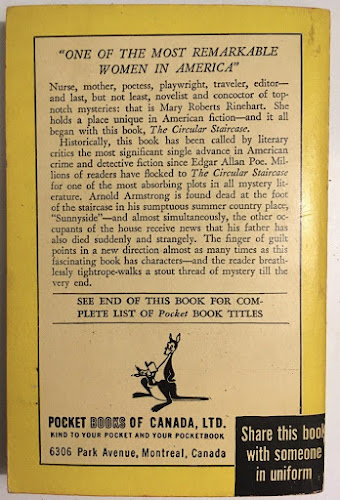Once, when I was starting to really get into gaming (I had just discovered the incredibly rich world of RPGs outside of the big brand name game Dungeons & Dragons), I was at the Compleat Strategist in NYC, which was the big and really only tabletop RPG store in the city at the time. I ran into a guy who was maybe 10 years older than I was who was asking about a few games. He told me he used to play, but doesn't anymore but still buys RPG books for "non-linear fiction, you know." I remember thinking that made a lot of sense, but was also a bit sad as you would just not get the same satisfaction of immersion and interaction from just reading these books as opposed to playing or running them. And yet here I am, twenty odd years later, picking up game books with the almost sole intention of just reading them. I do have a tiny hope to run something again. It's just that there is so much material and so little opportunity and in the end I'll probably just make my own thing up as usual.
I'm not a big Call of Cthulu guy. I am a huge fan of pulp gaming, though. Together, they make a very nice mix. The pulp element elevates the Call of Cthulu setting out of its depressing (to me) death/insanity spiral base play and allows the players to go in half-cocked and blasting. And the mythos world gives an endless possibility of conspiracies and bad things all over the world for pulp adventurers to go investigate and fight. The Two-Headed Serpent sets the players are being hired by Caduceus, a global philanthropic organization that sends doctors and scientists to help crisis situations around the world. I won't give any more away in case anybody is going to play it, but of course shit is not what it seems. Lizard people are involved.
[warning some tabletop RPG nerdery/inside baseball talk in the paragraph below.]
Overall, it is extremely well put together. It is a beautfully-produced book. The adventures are in diverse and fun situations (chases through the crammed streets of Calcutta, disease outbreak in the Belgian Congo, mafia wars in NYC, expedition to Iceland and that's about half of them!). The back story is well thought out and the badguys and other NPCs are a great mix. My only hesitation to move this from really good to great is that it is all a bit old school. Absolutely nothing wrong with the old school and while I vacillate, I am probably actually pretty old school myself at this point. It's just that the overall timeline is basically a railroad. I know that is hard to avoid with a long campaign in this vein. I just feel like there are innovative ways to present this material so that it is much more freeform and dynamic, which would allow the players more agency in the way things unfold, while still moving the campaign into all the great material provided here. The few options are presented here as basically if then statements and they really ultimately only shift the order of things somewhat. Likewise, there is no real connection set up between the material and the players. So basically, their motivation is "you were hired by this organization to do some stuff". If I were to run this, I think I would do some kind of hook-building process where I got the players to come up with two connections their character would have to something in the campaign setting. I just find when they have those things, they tend to be much more motivated (or you just make the main bad guy kick their ass right at the beginning :) ).
Anyhow, really fun to read and would be great fun to play or run one day.


































